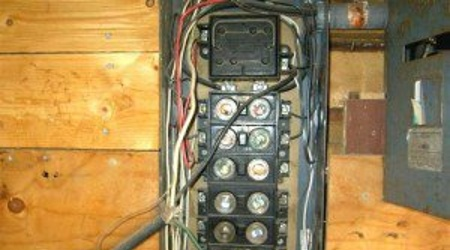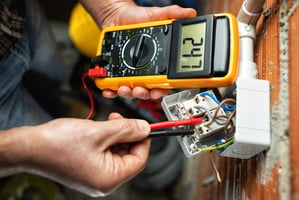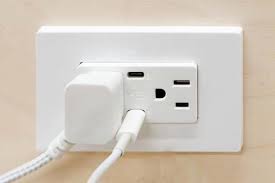As the New Year rolls in, start yours safely - with a Whole Home Electrical Safety Inspection....
What’s a Heavy Up and Why Does My Old House Need One?

A Heavy Up involves increasing the amperage to your old home’s service panel so that your electrical system can handle a higher load than it was designed to. Typically, this involves increasing the amperage from 100 amps to 200 amps. The chances are that the more historic (that is, old) your home, the greater the need for a "heavy up" to increase the capacity of the electrical panel.
Older homes, especially historic ones like those common within the Washington DC area, were built long before many of our modern technologies existed – telephone, cable or satellite TV, computers, the Internet, and so on. While most of these homes were brought into the 20th century at some point, many have not been updated to meet 21st century demands. That's where a heavy up comes in.
Say you want to install central air conditioning or some form of home automation in your older house – it's essential to ensure that the power center of the home is able to handle the increased demand and capacity. Think about the peak demand times during the summer when you are using central air conditioning in addition to other things like the microwave, computer, and TV.
Why should I bother with a Heavy Up?
Installing a Heavy Up will make your home safer and better able to handle today’s greater electricity needs. This results in there being more stable power, better grounding, space for additional circuits, and the main breaker shut off (in case of emergencies).
What are the signs I should look for?
- Do the lights often flicker when electrical draws (window A/C unit, bathroom fan) are turned on?
- Do your circuit breakers frequently shut off?
- Are you putting on an addition that will increase the home’s square footage?
- Are you installing a power-hungry item, such as central A/C?
Who does this kind of update? What does it require?
A licensed electrician is the only person who should be doing this to your home. Please do not try to do it yourself.
As for what it requires, you’ll need a permit (which we can help you deal with) as well as inspections from the local county or municipality and one from the local eclectic company before they make the final connection at their end of the meter.




